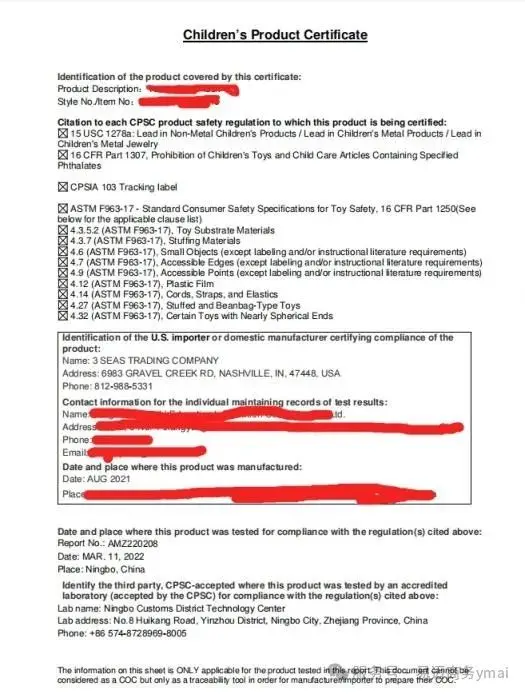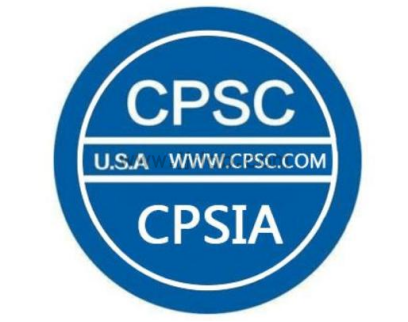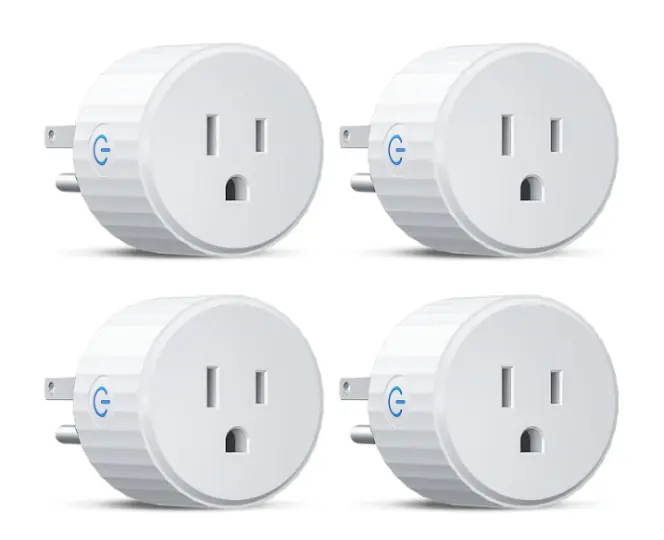
Prop 65 Compliance Testing
Proposition 65 of California, officially known as the California Safe Drinking Water and Toxic Enforcement Act of 1986, also referred to as CA65, CP65, or Prop 65, came into effect in November 1986.
Products covered under this proposition include toys, clothing, electronic products, and virtually all types of goods. The proposition outlines exposure scenarios for hazardous substances. This article will provide a detailed explanation of the core requirements, applicable scope, testing items, and application process of California Prop 65 to help businesses better comply with this regulation.
Core Requirements:
1. Discharges of listed hazardous substances into drinking water sources are not permitted.
2. Clear and reasonable warnings must be provided (a warning is required for listed substances unless the exposure level is so low that it poses no risk).
Scope of Application:
To date, products involved in lawsuits under Prop 65 include toys, electronics and electrical appliances, clothing, accessories, cosmetics, furniture, and virtually all consumer products.
Testing Items:
Depending on the product type and materials, different chemical substances are regulated with varying limit requirements.
Key hazardous substances include:
- Lead (Pb)
- Cadmium
- Arsenic (As)
- Formaldehyde
- Phthalates
Application Process:
1. Determine testing items: Choose tests based on product materials and usage.
2. Fill out the application form: Provide product manuals, BOM (Bill of Materials), etc.
3. Send samples: Send 2–3 samples to the laboratory.
4. Laboratory testing: Standard turnaround is 7–10 days; expedited service is available.
5. Obtain report: Certification is issued upon passing; no factory audit is required.
Frequently Asked Questions
01. How long is the report valid?
Prop 65 certification does not have a fixed validity period. However, reports must be updated in line with regulatory changes, and older versions become invalid.
02. Is the certification expensive?
Costs depend on the product type and materials used.
03. Is a factory audit required?
Only product testing is required; there is no audit or follow-up cost.
As a key regulation for the California market in the United States, Proposition 65 imposes strict requirements on product safety and compliance. Companies should thoroughly understand and adhere to the relevant provisions of this law. By utilizing professional testing and certification services, businesses can ensure their products meet California market entry requirements.
Email:hello@jjrlab.com
Write your message here and send it to us
 Toy Toxicology Testing CA
Toy Toxicology Testing CA
 CPSIA Compliance for Children's Products
CPSIA Compliance for Children's Products
 Food Contact Items Testing
Food Contact Items Testing
 Energy Star Testing Laboratory
Energy Star Testing Laboratory
 Do I Need to Test Every Color for CPSIA Compliance
Do I Need to Test Every Color for CPSIA Compliance
 Accredited Medical Device Testing Lab
Accredited Medical Device Testing Lab
 Safety Testing for Baby Wrap
Safety Testing for Baby Wrap
 United States Electrical Plug Certification
United States Electrical Plug Certification
Leave us a message
24-hour online customer service at any time to respond, so that you worry!




